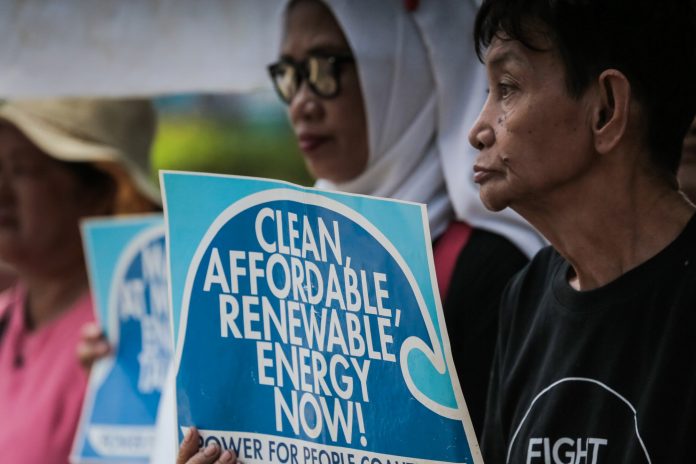A recent study suggested that a just transition approach to the Philippines’ renewable energy (RE) development can significantly accelerate the country’s efforts to meet its climate goal of a 75 percent reduction in greenhouse gas emissions by 2030.
The study released by the Legal Rights and Natural Resources Center (LRC) also indicates that this approach can help fulfill the country’s projected energy demands, making it a crucial strategy for sustainable energy development.
“A fair transition is a fast transition towards a clean and renewable energy future for the Philippines. A Just Energy Transition (JET) framework will potentially reduce a third of commissioning time for renewable energy projects as it addresses major bottlenecks in impact assessment and social acceptability,” said Maya Quirino, Advocacy Coordinator of LRC.
The study noted that over the past decade, commissioning times for RE projects have been increasing, with social conflicts causing delays of up to eight months, accounting for 33 percent of the current global average commissioning time of 24 months.
A study on environmental impact assessments (EIA) found that appeals and redressing due to insufficient assessments and public consultations made up 46 percent of the average EIA duration.
In its latest publication, ‘Just Energy Transition in the Philippines’, the LRC explained that the JET framework shifts energy control to communities, democratizes wealth and the workplace, advances ecological restoration, and emphasizes racial justice and economic and social equity.
The framework aimed for a community-focused transition that re-localizes production and consumption while preserving and restoring cultures and traditions.
A notable example is the proposed 603-megawatt Rizal Wind Energy Project by Singapore-based Vena Energy.
The project, situated in the protected Masungi Georeserve, has faced opposition from local advocates and indigenous peoples due to the potential impacts on the karst ecosystems and the over 70 endemic species in the area.
Quirino said that impact assessments in affected communities should include full disclosure mechanisms to allow public scrutiny of renewable energy projects.
Applications must detail all potential impacts—direct, indirect, induced, and cumulative—and adhere to stringent standards covering environmental, socioeconomic, and human rights impacts.
“These requirements should not be limited to a one-time evaluation but conducted as periodic and timely audits throughout the entire duration of projects, particularly for commercial and large-scale renewable initiatives,” Quirino said.









